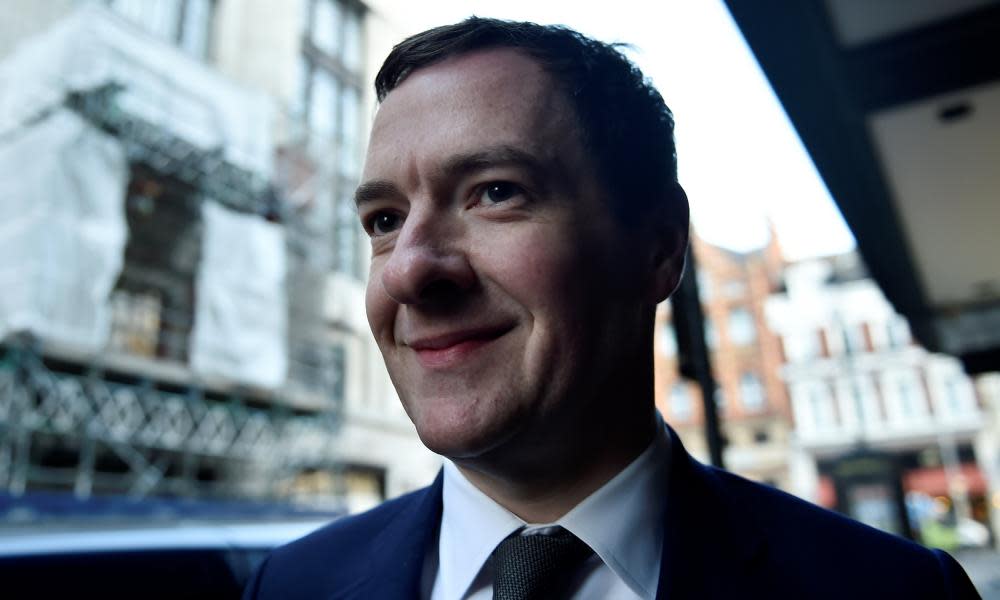George Osborne takes on seventh job with Stanford University role

George Osborne has taken on a seventh professional role, and his third at a university, it has been announced.
Osborne, the editor of the London Evening Standard, among many other jobs, has been named a visiting fellow at Stanford University in California, the university said in a statement on Wednesday.
The former chancellor has officially been given two separate roles at Stanford – distinguished visiting fellow at the Hoover Institution and a dean’s fellow at its graduate business school – and can theoretically claim eight jobs if he chooses.
Since Osborne was removed as chancellor by Theresa May in June last year, he has amassed new roles at a dizzying pace, most notably the Standard editorship, despite his lack of experience in journalism.
His most lucrative sideline remains an advisory role for the US fund managers Blackrock, for which he makes £650,000 a year working one day a week.
Osborne, who stepped down as MP for Tatton in June amid controversy over whether he could properly serve constituents with so much else to do, also makes well-remunerated speeches around the world via the Washington Speakers Bureau.
Yet another role is chairing the Northern Powerhouse Partnership, a lobby group he set up to continue efforts on what was one of his personal economic projects while in political office.
Finally, there are his two other academic posts. In January he was made Kissinger fellow at the Arizona-based McCain Institute for International Leadership, the institution established by the Republican senator John McCain, a role that lasts until the end of 2017.
Then in June, Manchester University announced Osborne had been made honorary professor of economics, an unpaid role in which he will deliver a handful of lectures each year.
At Stanford, Osborne’s duties will take in the Hoover Institution, a public policy thinktank attached to the university, and its graduate business school (GBS), one of the most renowned in the world.
Osborne “brings deep policy and global experience to the GBS, and we look forward to the lively exchanges he will conduct in meetings and in the classroom throughout the coming academic year”, said its dean, Jonathan Levin.
Tom Gilligan, head of the Hoover Institution, hailed Osborne as “a champion of a vital alliance between the United Kingdom and the United States”.
The university did not say how many days Osborne would commit to the roles, or how often he would visit. There was no immediate reply to questions on this.
Osborne did, however, say the roles would be “a unique opportunity for me to connect to Stanford and the west coast”. He added: “Whatever you’ve done in your life, you should never stop learning and wanting to understand the future.”

 Yahoo News
Yahoo News 
